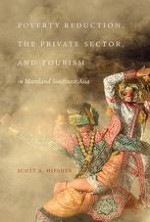2017 | OriginalPaper | Buchkapitel
4. Mainland Southeast Asia’s Regional Integration and Ethnic Minority Communities
verfasst von : Scott Hipsher
Erschienen in: Poverty Reduction, the Private Sector, and Tourism in Mainland Southeast Asia
Verlag: Springer Singapore
Aktivieren Sie unsere intelligente Suche, um passende Fachinhalte oder Patente zu finden.
Wählen Sie Textabschnitte aus um mit Künstlicher Intelligenz passenden Patente zu finden. powered by
Markieren Sie Textabschnitte, um KI-gestützt weitere passende Inhalte zu finden. powered by
